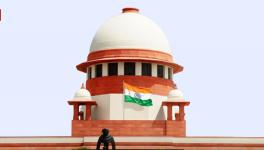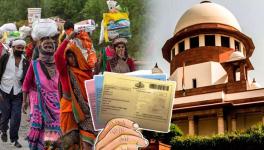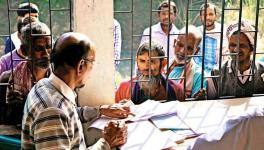Rajasthan HC Ruling puts Question Mark over ID Proof for Access to Services
On April 15, in an urgent hearing on a petition by lawyer Shalini Sheoran, the Rajasthan High Court ruled that the transgender community cannot be denied necessary treatment because of lack of identity cards.
The petitioner had approached the court through an urgent hearing over a WhatsApp call, and listed the grievances of the transgender community, many of whom reported inability to access treatment on account of not possessing documents that could establish their identity. Sheoran said IDs were needed even to get a pass to get out of the house during the lockdown.
In February this year, the Rajasthan government set in motion a process of issuing identity cards to transgender people, so they could have access to government schemes. However, they cannot be denied services for the lack of an ID, the plea said. The court has sought a response in the matter from the state’s additional advocate general in four weeks.
This ruling comes on the anniversary of the NALSA (National Legal Services Authority) judgment of 2014, when the Supreme Court declared the transgender as the third gender, affirming that fundamental rights granted under the Constitution of India applied equally to transgender people, who are free to self-identify as male, female or belonging to the third gender. Reservation in education and jobs were opened up for them, in recognition of the fact that they were economically and socially backward, a marginalised group.
However, even though Parliament passed the Transgender Persons (Protection of Rights) Act last year, there are no rules for its implementation as yet. “The government has not yet notified the rules, and without rules the provisions of the Act cannot be enforced. There are no committees formed as the Act requires, and there are no budgetary allocations for anything needed under the Act,” Sheoran, who filed the petition, said.
Priyam Cherian, a Delhi-based lawyer, said: “This order recognises the importance of access to healthcare services and treatment for diseases other than COVID-19, in these times. Patients across the country needing urgent medical attention are facing this problem and having to move the court to seek basic medical attention. These interruptions in treatment, particularly for treatment for HIV, increases risk of resistance to drugs,” she added.
Sixty-eight-year-old petitioner Munni Bee moved the court after the Bhopal hospital, where she was under treatment for renal conditions related to the Bhopal gas tragedy of 1984, was converted into a COVID-19 hospital. The petitioner died before the matter could be decided.
The requirement of identity proof poses a huge hurdle to vulnerable communities. For the general population, mandatory requirement of Aadhaar for identification in order to access subsidies and services from the Consolidated Fund of India was upheld in a Supreme Court judgment of September 2018, called the Aadhaar judgment.
Justice (retired) A.P. Shah, former chief justice of the Delhi High Court and chairman of the 20th Law Commission of India, in a foreword the book ‘Dissent on Aadhaar’, wrote: “I remain concerned that the court failed to satisfactorily consider the challenges of granting such identity to the most deserving, either on account of technological limitations or the quality of governance, or even simpler social concerns of accessibility (for example, how can a nonagenarian who cannot walk, and who does not have the strength to submit a fingerprint for documentation, stake his legitimate claim to the old age pension granted by the state?) For all the talk around the ‘benefits’ of Aadhaar, there remains a real concern that a large-scale use of Aadhaar for the purposes of authentication is likely to lead to large populations of society remaining excluded from social sector benefits.”
This exclusion is in sharp relief now, while the lockdown to prevent the spread of coronavirus has left several migrant workers stranded far away from home. Many were forced to walk hundreds of kilometres home to their villages. Some have died on the way, like a labourer who set out from Delhi to Begusarai in Bihar, about 1,200 kilometres away, and died at Varanasi after walking about 850 of those. His kin could not arrive for his last rites due to the lockdown; the Uttar Pradesh police cremated him. It was unclear how long he had walked for without having a meal.
The Right to Food Campaign has demanded that the government does away with the requirement for ration cards or an identity proof at this time, and distribute rations universally, to all in need. Food Corporation of India stocks are currently in excess of storage capacity, with about 75 million tonnes of foodgrains in godowns and about 45 million to be acquired as part of the procurement process after the Rabi harvest. There is now also a proposal to use rice stocks to manufacture ethanol for producing hand sanitisers, even though there are reports of starvation deaths.
In a statement released on Tuesday, the Right to Food Campaign warned that the lack of food could cause an increased incidence of tuberculosis and health problems related to starvation. As it stands, over 1,000 people die each day in the country from complications related to TB. (Total deaths due to COVID-19 were 640 on April 22.)
In January 2017, The Times of India reported that 99% of Indians above the age of 18 had an Aadhaar; there are thus several crores of adult Indians without the Aadhaar, who may not be able to access subsidies or benefits offered by the government. In his solitary dissent on the Aadhaar judgment, Justice D.Y. Chandrachud had struck down the entire idea of Aadhaar, calling the legislation illegal.
In July 2017, Union Minister of State for Electronics and IT, P.P. Chaudhary, told the Lok Sabha that Rs 9,055 crore had been spent on the Aadhaar project by the Unique Identification Authority of India, since its inception in 2009. Someday, India will have to reckon what use Aadhaar has served, and whether this vast expense is justified.
Get the latest reports & analysis with people's perspective on Protests, movements & deep analytical videos, discussions of the current affairs in your Telegram app. Subscribe to NewsClick's Telegram channel & get Real-Time updates on stories, as they get published on our website.
























